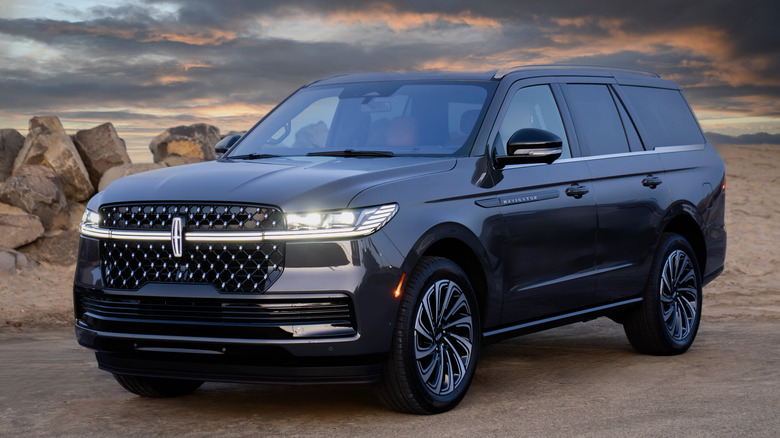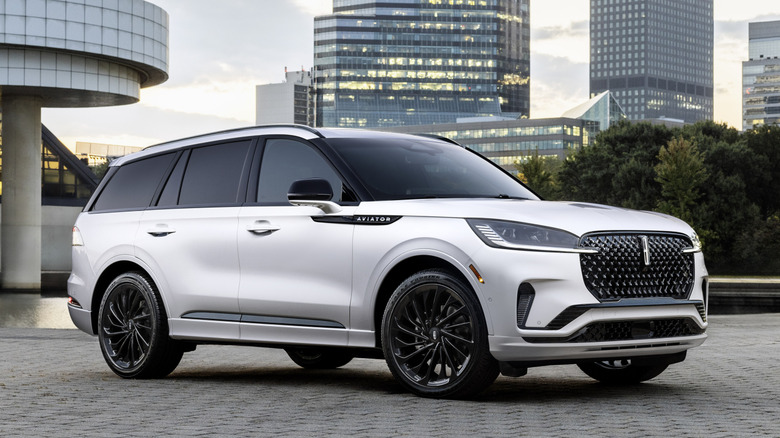Who Makes Lincoln Engines And Are They The Same As Ford's?
Lincoln has been the luxury division of the Ford Motor Company since 1922, when Henry Ford bought the then-five-year-old company out of receivership. The brand was named for the first U.S. president whom founder Henry Leland had voted for, and has made several notable vehicles during its 103 years under the Ford umbrella. Some of these are presidential limousines, including the custom limousine JFK was assassinated in.
Lincoln's current production lineup consists solely of SUVs. These are the compact Corsair, the Chinese-made Nautilus, the midsize three-row Aviator, and the extra-large, three-row Navigator. Our review of the 2025 Lincoln Navigator found it to be a powerful 6,000-pound luxury cocoon that could be challenging to park.
The engines that power Lincoln vehicles are made by its parent company, Ford. Many of these engines are shared between Ford and Lincoln vehicles, although Lincoln does not use the EcoBoost name for its engines. These shared engines include the 2.0-liter EcoBoost inline-4 engine, which makes 250 hp in the Corsair and Nautilus and the same in the Ford Bronco Sport Badlands. Lincoln also shares its turbocharged V6 engines with certain trucks and SUVs in the Ford lineup, including the Explorer, Expedition, and F-150. The Lincoln Aviator comes with a 3.0-liter, 400-hp version of the V6, while the Navigator gets an enhanced version of the 3.5-liter V6 that packs 440 hp.
What else should you know about Lincoln engines?
An important difference between the Ford-built engines used in Lincoln vehicles and, say, the Hyundai-built engines used in Genesis vehicles is that the shared Ford and Lincoln engines have similar power ratings and components. Lincoln vehicles may have more upscale styling and plusher interiors than their Ford siblings, with touches of added comfort like air suspensions, but they are essentially identical under the skin, with the same engines and platforms.
Compare this approach to that of Hyundai, which builds unique engines that are more powerful for its Genesis brand. This helps differentiate Hyundai and Genesis, while also justifying the price points that the two brands present to their respective segments of the marketplace. Genesis also differs from Hyundai with its commitment to front-mounted engines with rear-wheel drive or all-wheel drive (AWD), compared to the many Hyundai internal combustion engine vehicles that come with front-wheel drive and have an AWD option. Ford has no such differences between its mass-market and luxury brands.
When all is said and done, the perception of luxury is in the mind of the customer. Lincoln sold a total of 104,823 vehicles across its four vehicle lines in calendar year 2024, compared to 1,974,009 for parent Ford, of which 771,042 were Ford SUVs. Lincoln and Ford engines may come from some of the same factories, but the higher-margin Lincolns still added profits to Ford's bottom line.

